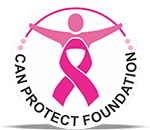Two tests can help prevent cervical cancer:
- The Pap test (or Pap smear) looks for precancers, cell changes on the cervix that may turn into cervical cancer if they are not taken care of appropriately. You should begin Pap tests at age 21.
- The human papillomavirus (HPV) test looks for the virus that can lead to these cell changes.
The most crucial thing you can do to help avoid cervical cancer is to have regular screening tests starting at age 21.
The most essential thing you can do to help avoid cervical cancer is to have regular screening tests starting at age 21.
If your Pap test results are normal, your possibility of getting cervical cancer in the next two years is very low. For that reason, your doctor may tell you that you will not need another Pap test for as long as two years. If you are 30 years old or older, you may choose to have an HPV test along with the Pap test. If both test results are normal, your doctor may tell you that you can wait one years to have your next Pap test.
More Steps to Help Prevent Cervical Cancer
These things may also help lower your risk for cervical cancer—
- Don’t smoke.
- Use condoms during sex to lower the risk.
- Limit your number of sexual partners.
What Are the Symptoms of Cervical Cancer? >
